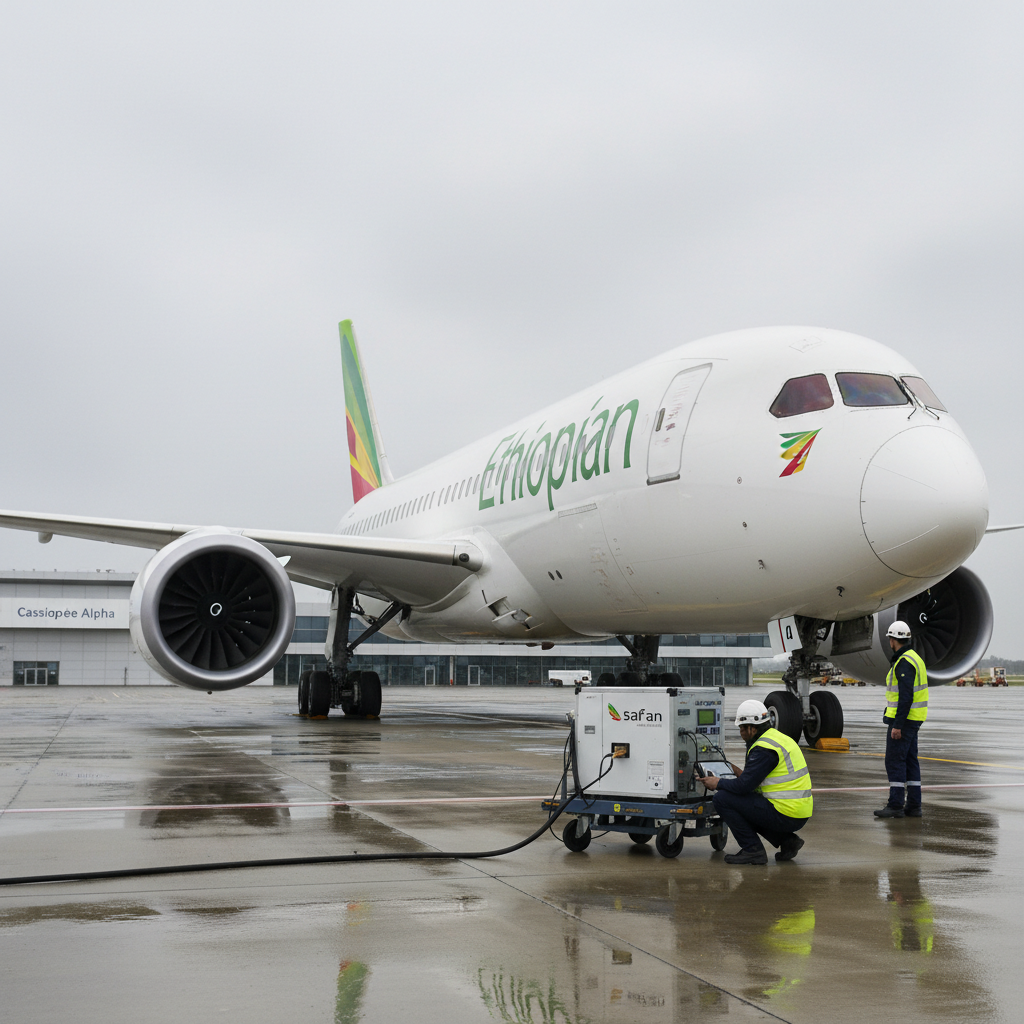Physical Address
304 North Cardinal St.
Dorchester Center, MA 02124
Physical Address
304 North Cardinal St.
Dorchester Center, MA 02124
Global aviation news tracker
Global aviation news tracker

Safran’s Cassiopée Alpha will be rolled out fleet‑wide at Ethiopian Airlines to centralize flight data monitoring (FDM).
On October 30, 2025, French aerospace group Safran confirmed that Ethiopian Airlines (IATA: ET, ICAO: ETH) has selected its Cassiopée Alpha system for airline-wide flight data monitoring. The announcement positions Cassiopée Alpha as a core analytics tool across the carrier’s operations, aimed at boosting safety oversight and regulatory compliance.
Developed in France, the Cassiopée Alpha platform delivers automated analysis of flight recorder outputs and other operational telemetry. Flight data monitoring (FDM) systems like Cassiopée Alpha help airlines spot trends, detect deviations, and prioritize safety interventions before issues escalate.
For Ethiopian Airlines, a major African operator, the contract underlines growing demand for European avionics and analytics solutions on global fleets. Safran framed the deal as a strategic win that brings its analytics and engineering experience to one of Africa’s largest carriers.
Cassiopée Alpha centralizes raw flight-data capture, normalizes parameters, and runs predictive analytics to flag safety risks. The system supports operators with dashboards, automated alerts, and compliance reporting — tools that can reduce manual review time and help safety teams focus on high-priority events.
Safran did not disclose the exact implementation timeline or how the platform will integrate with Ethiopian Airlines’ existing maintenance and operations systems. Likewise, no aircraft types or fleet counts were specified in the announcement. Those operational details are typically released later, during phased rollouts or joint technical briefings.
Industry watchers say wider adoption of cloud-enabled FDM and advanced analytics reflects a shift in how airlines manage risk: from reactive investigations to proactive monitoring. For passengers and crews, that trend aims to make routine flights safer by surfacing systemic issues earlier.